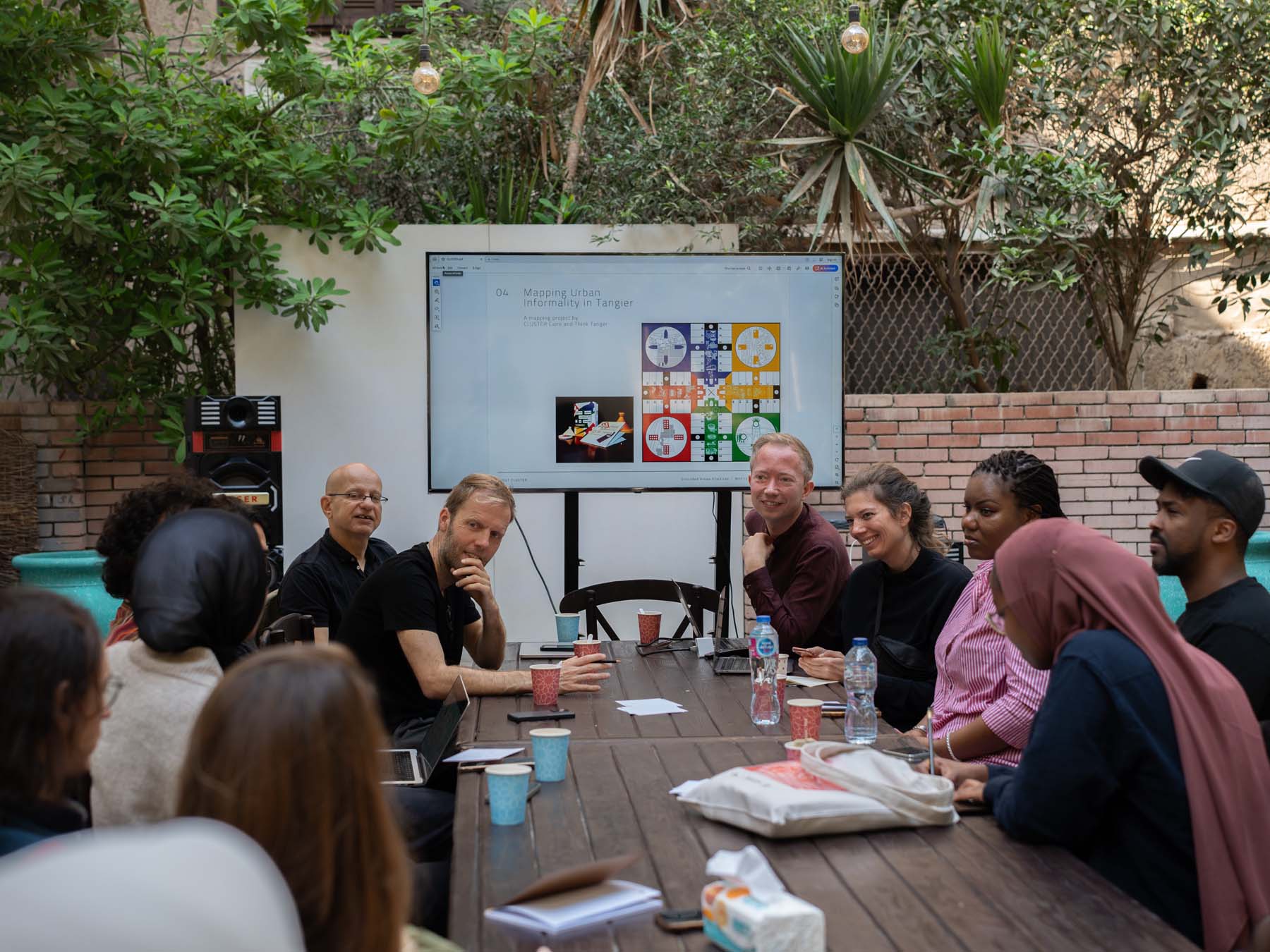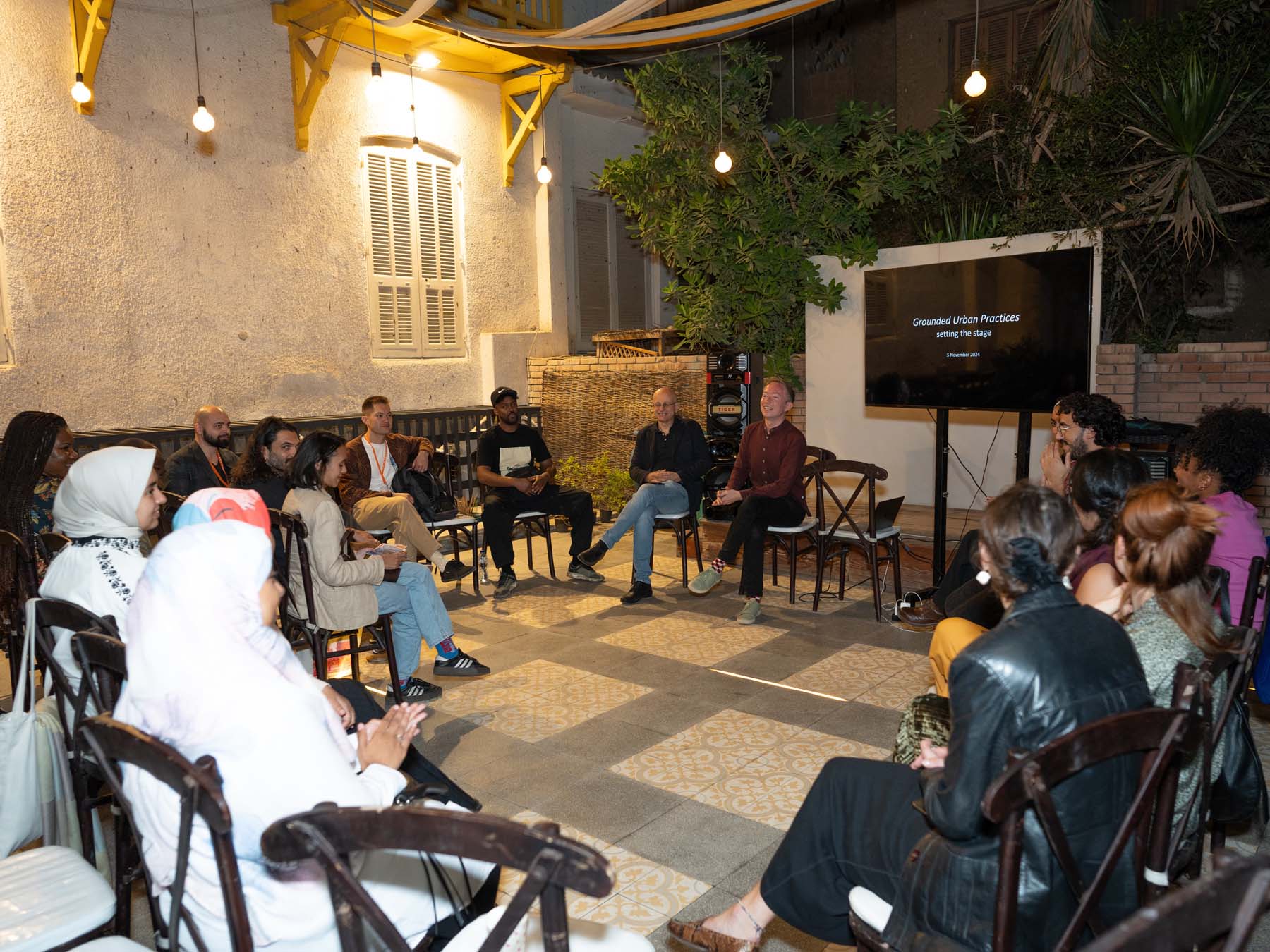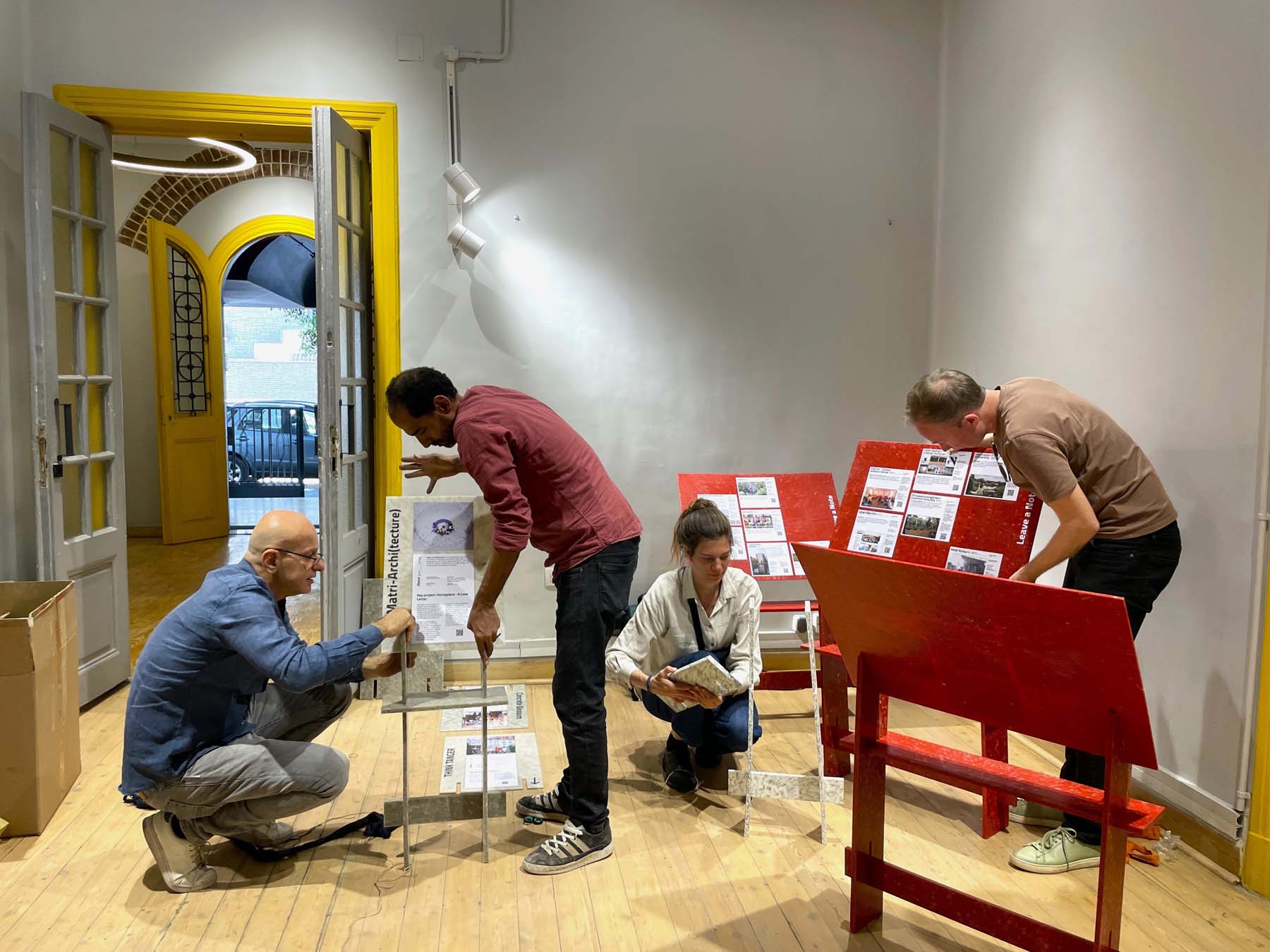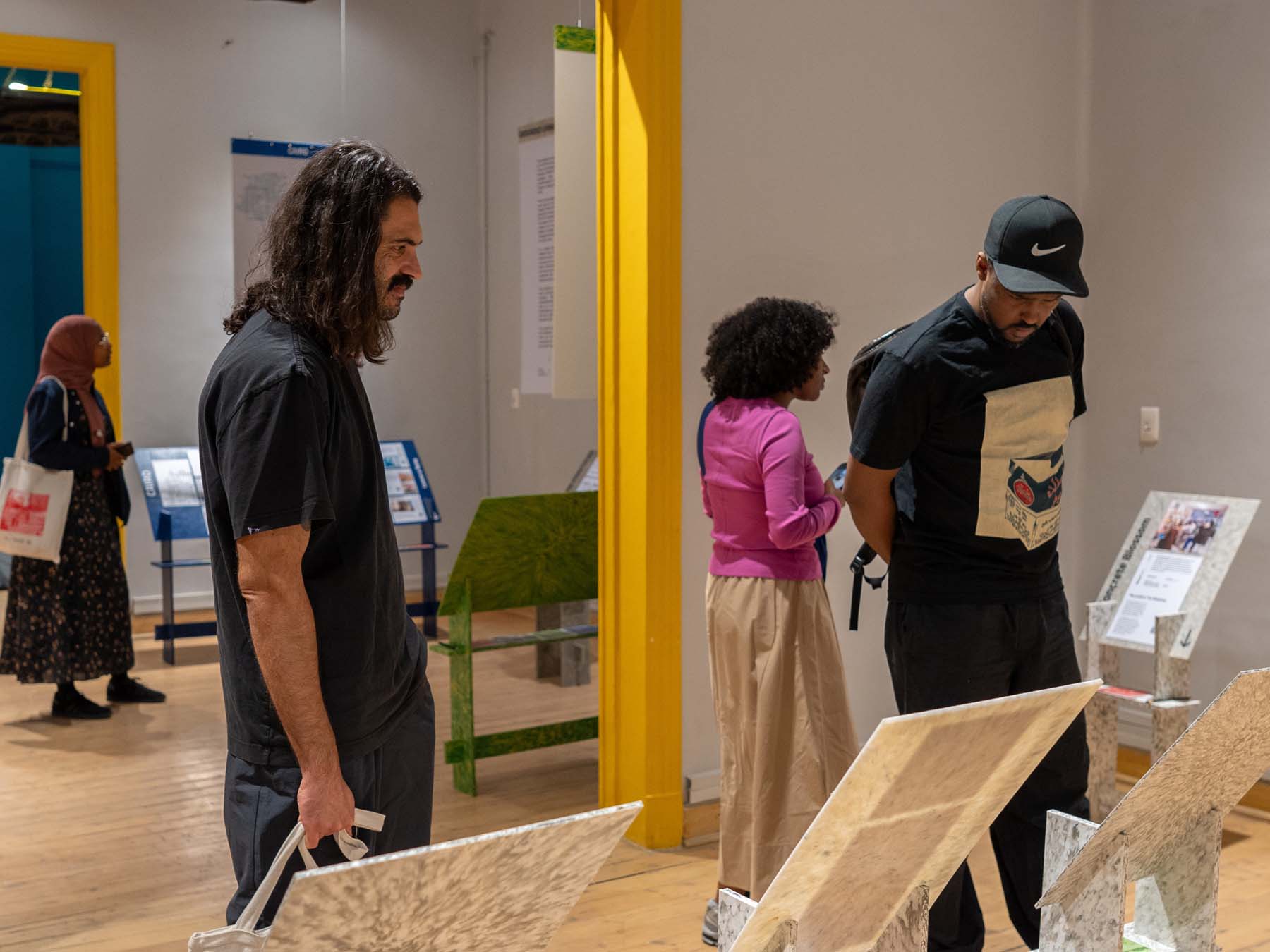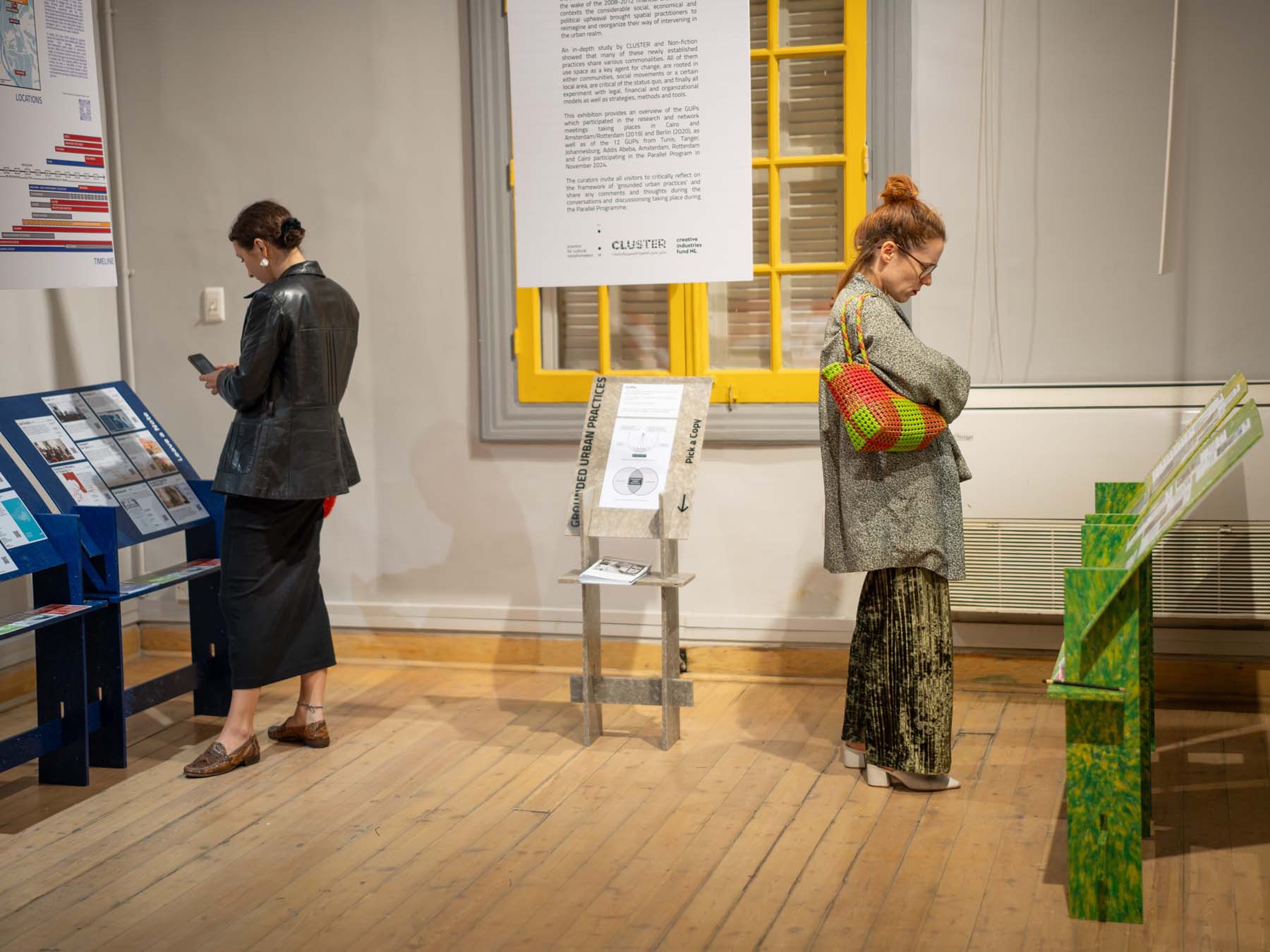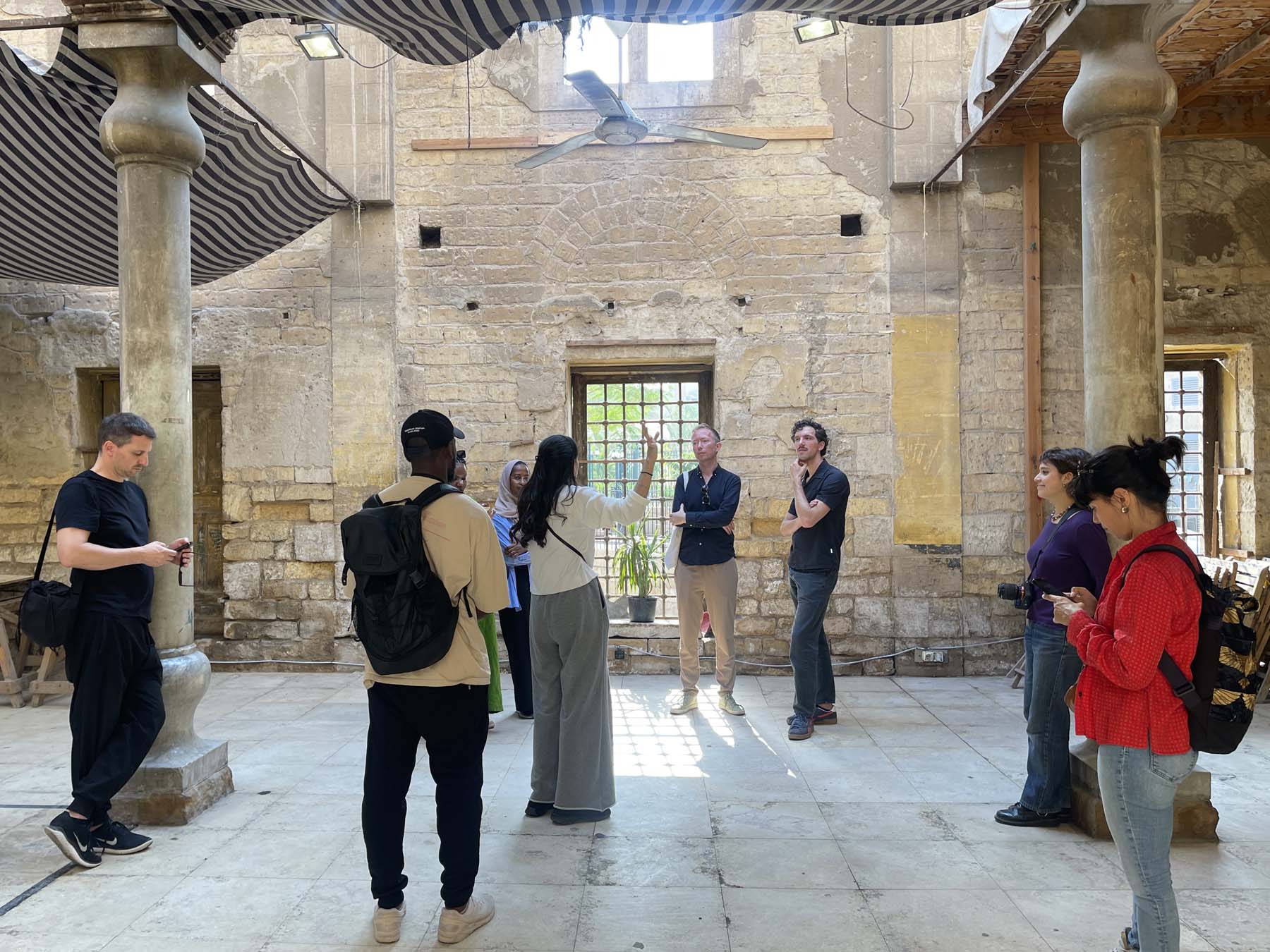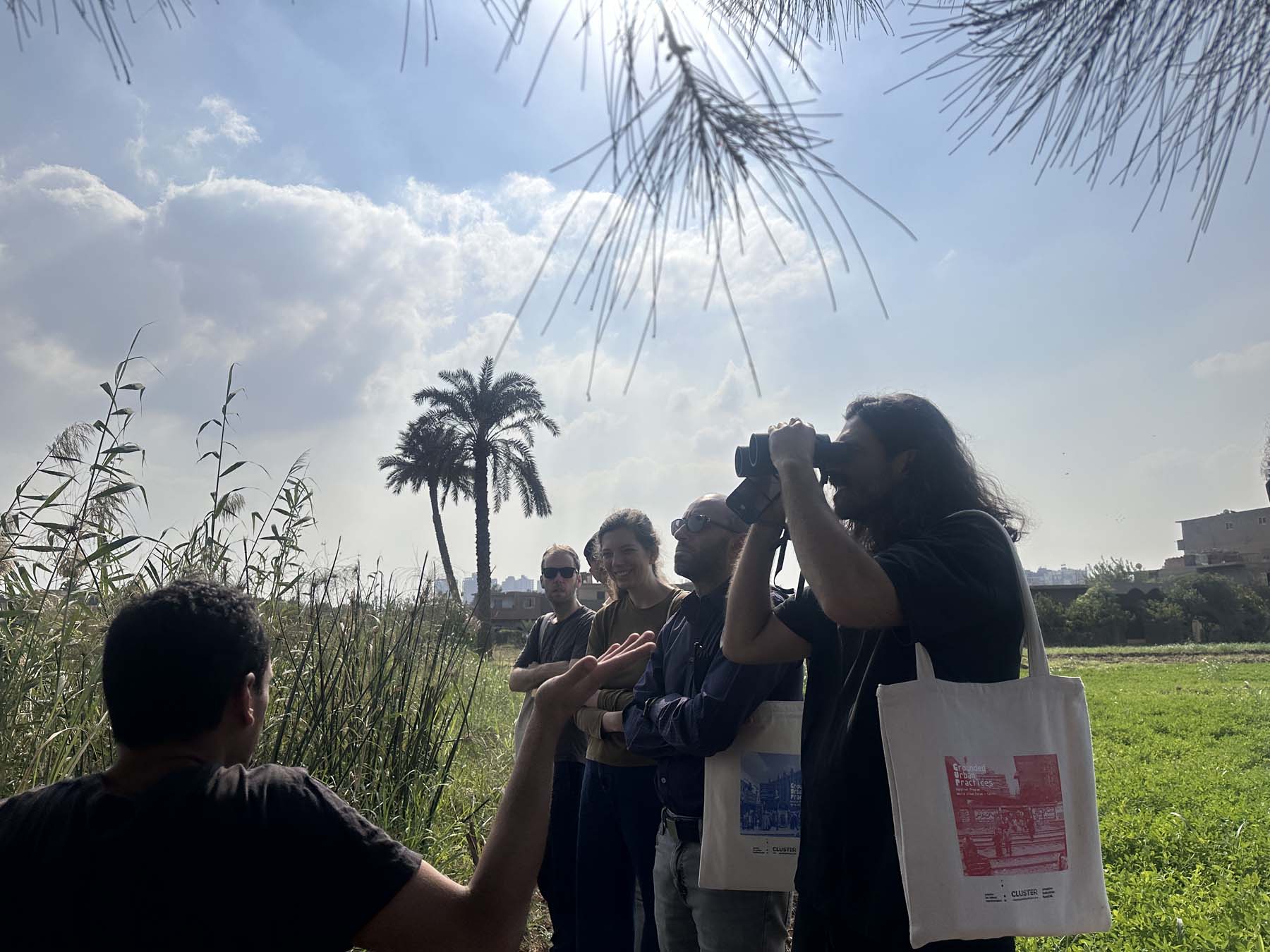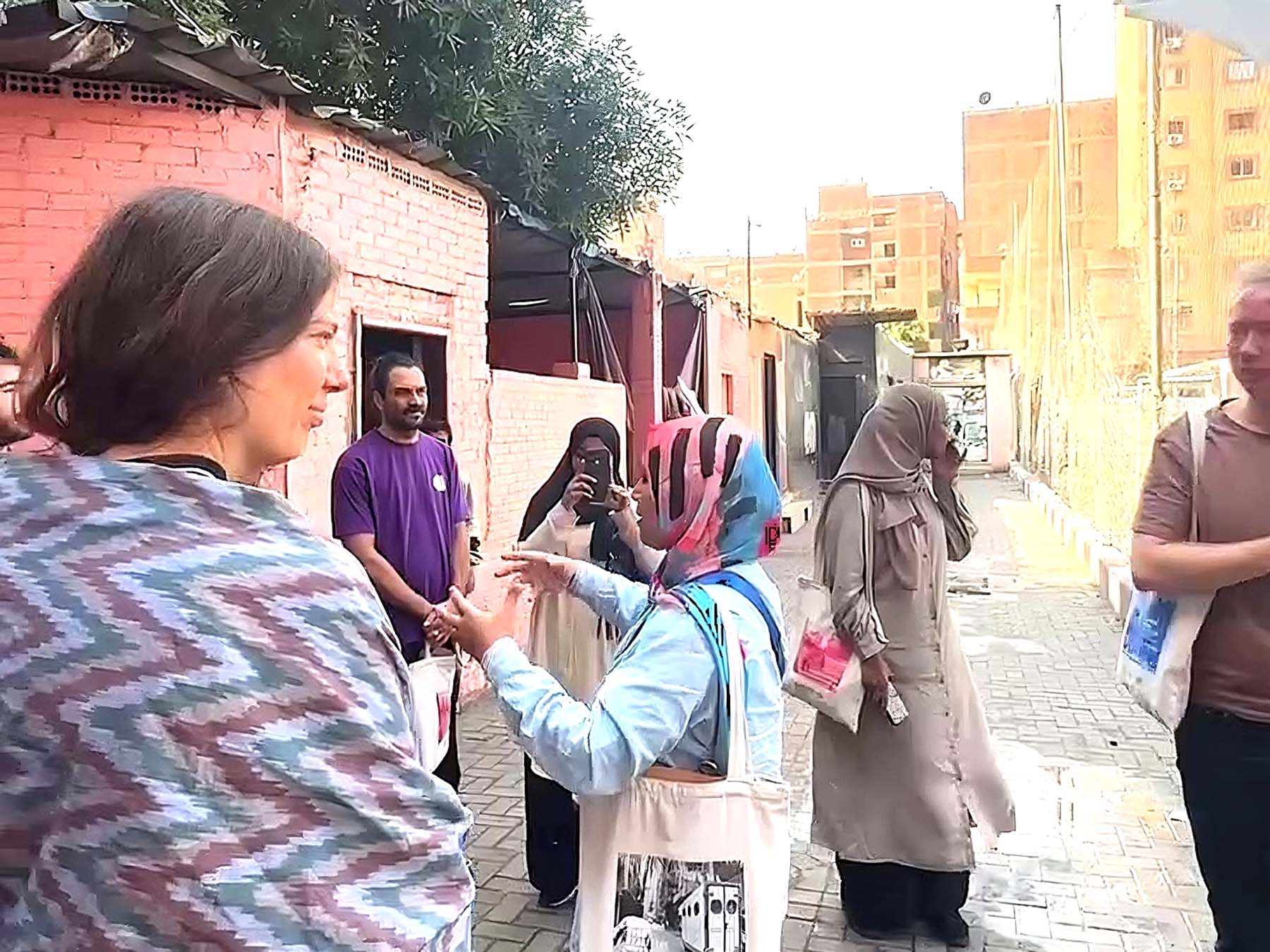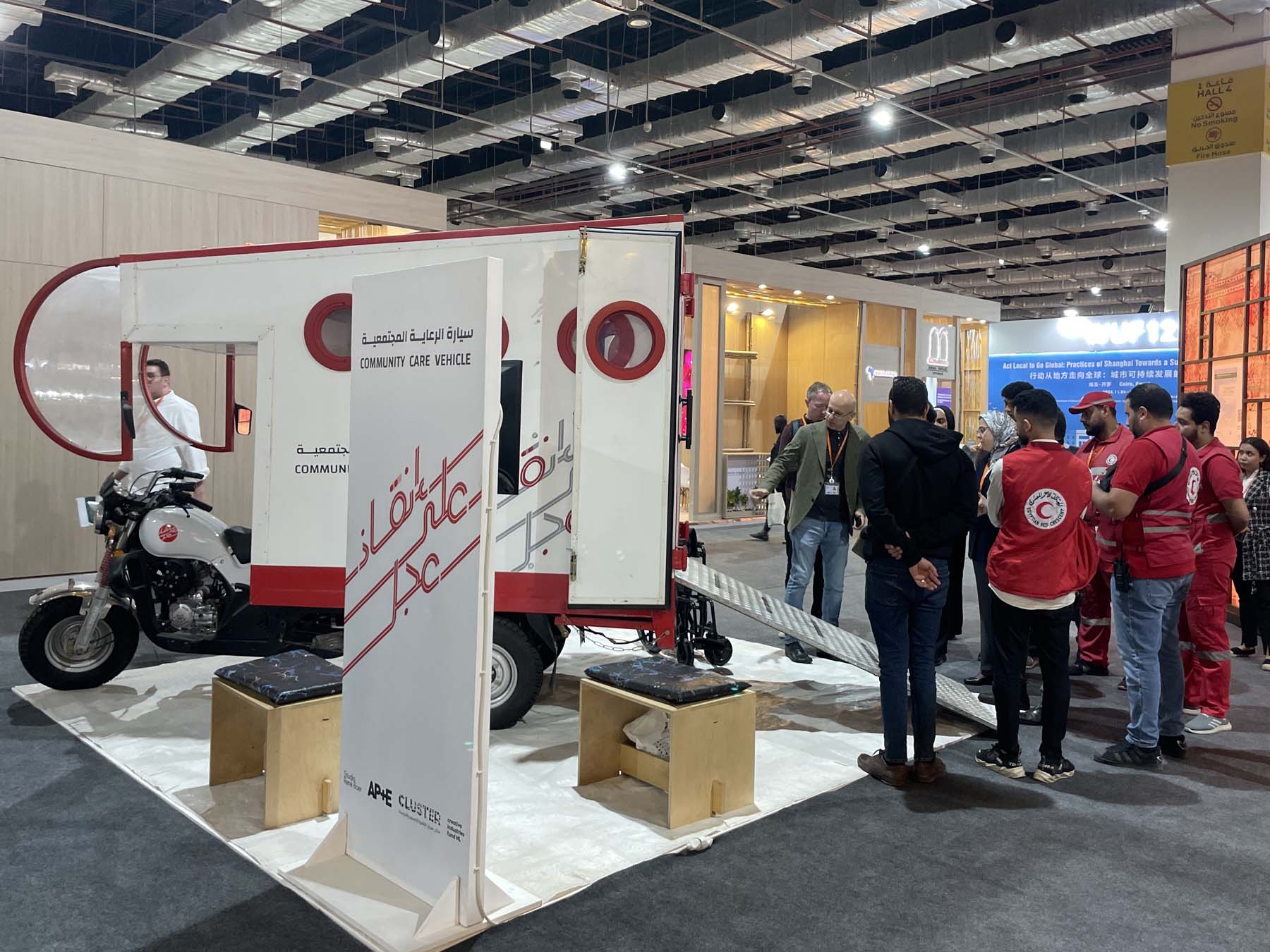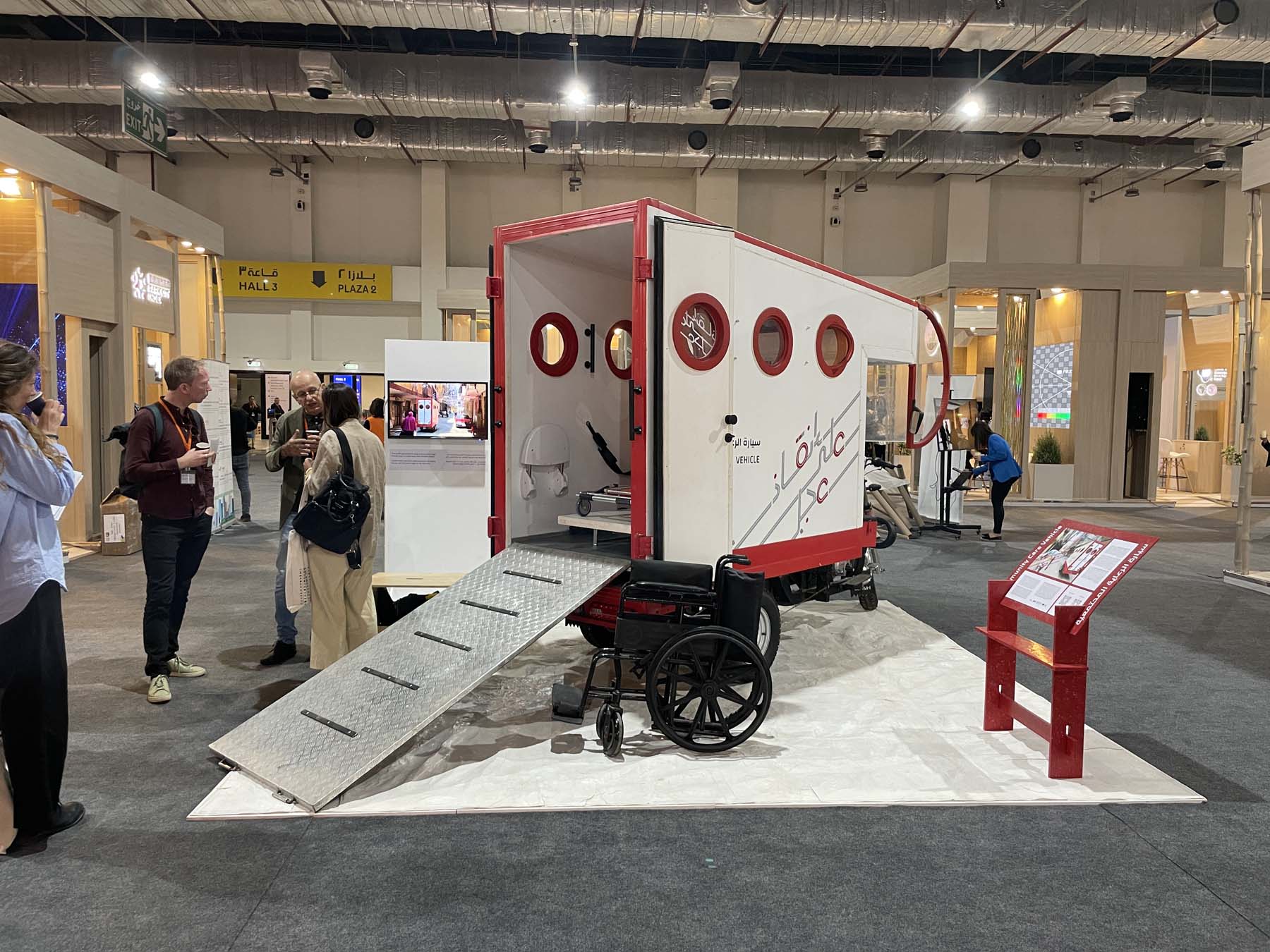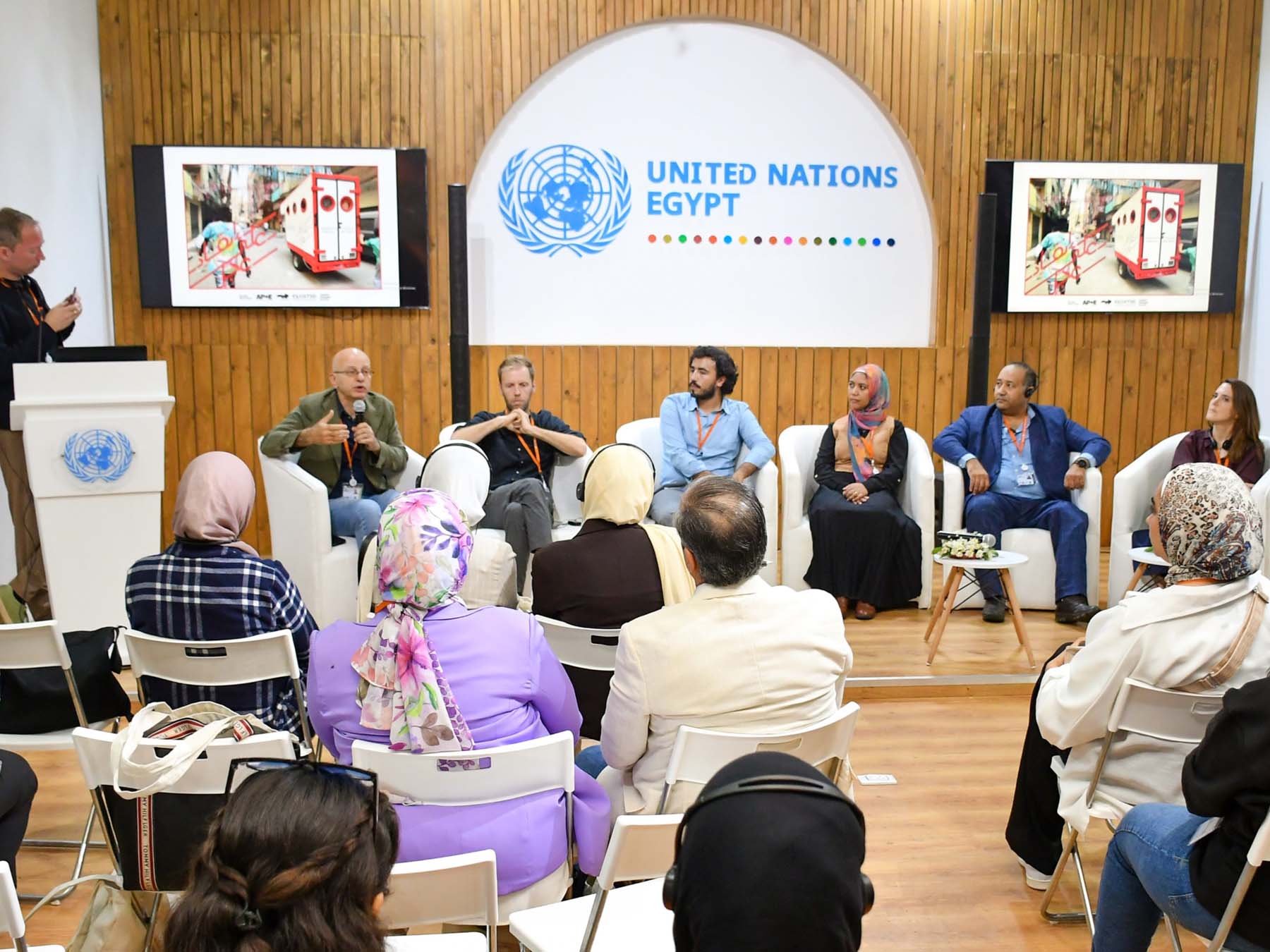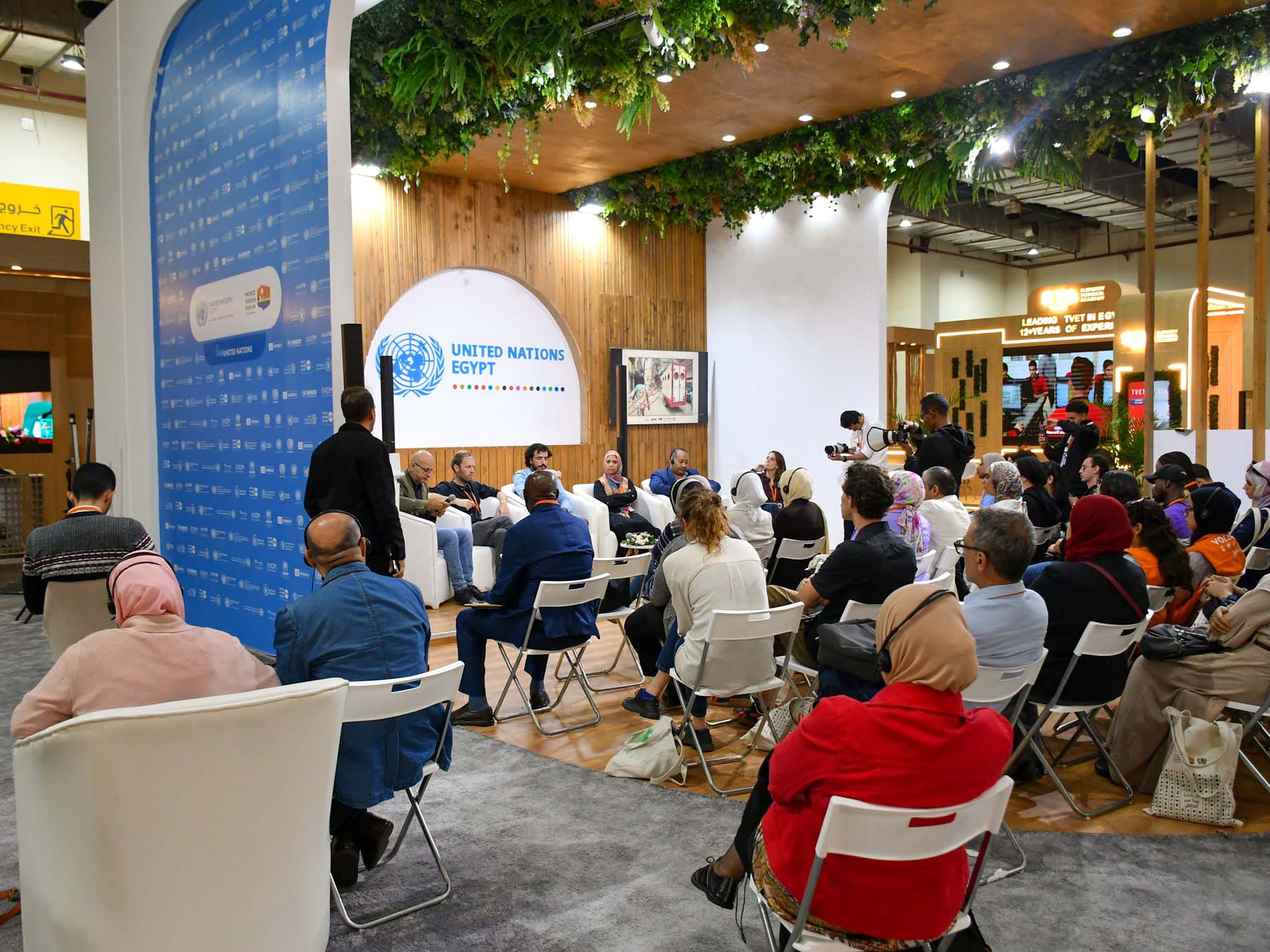PARALLEL PROGRAM - WORLD URBAN FORUM (WUF) 12
Location: Cairo, Egypt
Client: Creative Industries Fund
Scope: Urban Tours, Exhibition, Booth & Roundtable Discussion
Early November the 12th World Urban Forum took place in the Egyptian capital Cairo. Parallel to the official event, CLUSTER (Cairo) and Loom (Amsterdam/Rotterdam) hosted an alternative program engaging more grounded, critical and community-led approaches to urban issues in the city center and its peripheries. The Parallel Program took place from 5 to 8 November 2024 in various locations across Cairo, bringing together ‘grounded urban practices’ from Tunis, Tanger, Johannesburg, Addis Abeba, Amsterdam, Rotterdam and Cairo itself.
The WUF12 was organized by the United Nations Human Settlements Programme (UN-Habitat) and is usually dominated by a wide range of international agencies, governmental institutions and civil society organizations. Similar to previous WUFs and other global fora under the auspices of the UN, the event discussed policies and practices within the confines of a designated ‘blue zone’ outside the city core. It is key, however, to also engage with Cairo itself as a demonstrative lab of both urban challenges and opportunities facing many cities in the Global South.During WUF12, CLUSTER and Loom, two leading urban research and design studios, organized a series of parallel events to facilitate transnational conversations between emerging as well as more established grounded urban practices and introduced them to sites, projects and practices beyond the boundaries of the main event. The program, which is supported by the Dutch Creative Industries Fund, aimed at complementing the main event by engaging local initiatives, supporting grounded urban practices and instigating more critical urban discourse. The three-day program centered around a series of conversations, including an exhibition on ‘grounded urban practices’ close to the city center, as well as a number of visits to and encounters with local practices at the city’s peripheries. The parallel program was organized around principal urban themes, such as endangered heritage, climate justice, and learning from informality. Each grounded tour included an exchange between visiting guests and local community initiatives through presentations, lectures or small workshops.


